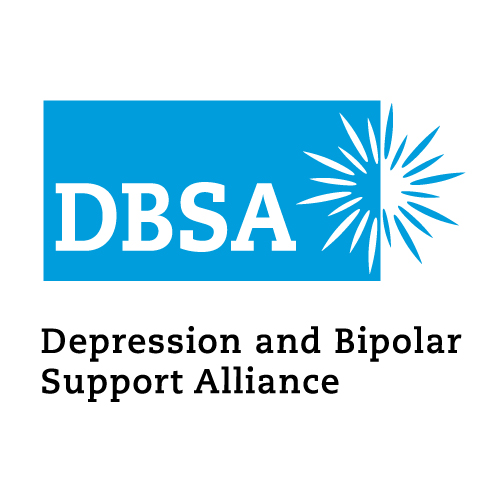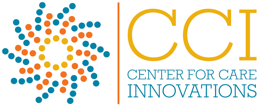Learning from Experience: Exploring the Impact of Approaches to Family Presence in Hospitals During COVID-19
During the COVID-19 pandemic, healthcare systems implemented changes to family presence policies to control infection. Families were not allowed to be present with their hospitalized family member. Changes were made without patient and family input. Emerging data highlight the harms of restrictions to patients, families, and clinicians, but this topic has not been studied through research. This project, funded by a Eugene Washington PCORI Engagement Award, engaged key partners to learn from their experiences about the impact of different approaches to family presence. Potential research questions important to patients and families, especially those disproportionately affected by COVID-19, were elicited and prioritized to inform future research.
Building Capacity for Long-Term Care Stakeholders in COVID-Related PCOR/CER
To control COVID-19 in long-term care settings, lockdowns were imposed, preventing residents from seeing family and friends in person and leading to increased social isolation and loneliness. Future patient-centered outcomes research/comparative effectiveness research (PCOR/CER) should address issues by testing and disseminating interventions that focus on social isolation and loneliness. With funding support from a Eugene Washington PCORI Engagement Award, IPFCC built capacity for residents, families, leaders, and staff in four long-term care settings; researchers; and other stakeholders to partner by: developing better understanding of social isolation and loneliness related to COVID-19; modeling a program to build effective partnerships in long-term care; and activating a network of partners to facilitate future collaboration for PCOR/CER.

Supporting PFCC Practices and Strategies in the Time of COVID-19
With support from the NYS Health Foundation, IPFCC launched the project, "Supporting PFCC Practices and Strategies in the Time of COVID-19”. The project served as a resource and clearinghouse for up-to-date, easily accessible, information about ways to stay grounded in PFCC core concepts during COVID-19, while also prioritizing safety. Key activities of the project included scanning the field for best practices, strategies, emerging concerns/issues, and examples of partnerships with patient, resident, and family advisors; developing guidance tools to enhance/strengthen partnerships; promoting virtual sharing and problem solving through hosting Informal Conversations on PFCC.Connect, and disseminating information, emerging best practices, and resources.

Engaging Underserved Urban Communities in Research: Addressing Challenges in the Context of COVID-19
IPFCC received Eugene Washington PCORI Engagement Award funding for the project, Engaging Underserved Urban Communities in Research: Addressing Challenges in the Context of COVID-19. IPFCC partnered with Smart from the Start, a family support and community engagement organization working with underserved communities in Boston and Washington, DC. This project was designed to identify challenges to engaging urban, underserved populations in research during COVID-19; develop guidance for creating meaningful partnerships between researchers and underserved communities that address accommodations needed due to COVID-19; and develop the capacity of leaders from these communities to partner in planning, conducting, and disseminating research.

Engaging the Expertise of Patients and Families in the Education of a New Generation of Providers
With support from the New York State Health Foundation, IPFCC led this project to develop, test, and disseminate resources for establishing or expanding patient and family faculty programs within academic medical centers (AMCs). This project was intended to address the lack of robust patient and family faculty programs in AMCs by developing, testing, and disseminating training resources and implementation guidance for establishing or expanding a patient and family faculty program. IPFCC developed online education modules.
A National Study of Patient and Family Advisory Councils (PFACs) in U.S. Children’s Hospitals
With support from the Lucile Packard Foundation for Children’s Health, IPFCC conducted a study of PFACs and other patient/family advisor roles in children’s hospitals. IPFCC partnered with the Children’s Hospital Association and Cincinnati Children’s Hospital. The project’s purpose was to identify the prevalence of PFACs in U.S. children’s hospitals and collect information about their structure and functioning, including during the COVID-19 pandemic. This work builds on a previous study conducted by IPFCC about PFACs in NY hospitals. Based on the findings from a national survey and interviews, IPFCC developed and disseminated policy and practice recommendations.


Improving Care for Patients with Serious Illness
With funding from the Patient-Centered Outcomes Research Institute (PCORI®), Oregon Health & Science University, in collaboration with six other institutions in the US and Canada (the Meta-LARC consortium), explored team-based vs. clinician-focused models for advance care planning in primary care. IPFCC served in a leadership role for the patient engagement component for this five-year, multi-site research project. Engagement of Patient and Family Advisors occurred at all levels of the project from the Research Practice Partnership team guiding the study to the individual clinics that participated.


Maternal and Child Health Measurement Research Network
IPFCC served as a subcontractor to Rutgers, the State University, in this three-year project funded by the Health Resources and Services Administration. IPFCC staff served as members of the Executive Steering Committee, Senior Advisory Committee, and several Technical Working Groups. IPFCC’s work supported the involvement of a family leader to participate in the Executive Steering Committee and Technical Working Groups; participate in the development, prioritization, and review of measures; and assist in dissemination activities.

Supporting the Depression and Bipolar Support Alliance Transforming Wellness Initiative
IPFCC provided research support and technical assistance for the Depression and Bipolar Support Alliance (DBSA)’s Transforming Wellness Initiative, a multi-year initiative to transform the definition of wellness for individuals living with mood disorders. IPFCC’s work included conducting focus groups with individuals with lived experience of depression and bipolar, supporting DBSA in the development of a peer and family advisory council, and developing educational materials to support continued peer and family engagement in the transforming wellness work.


Transforming Cardiovascular Care in Our Communities
IPFCC served as the Patient and Family Engagement Subject Matter Expert to the Center for Care Innovations NCAL Kaiser Permanente-funded cardiovascular disease program with an emphasis on reducing health disparities. As part of this technical assistance, a training video was produced to prepare clinic teams to conduct patient and family interviews to better understand the perspective of individuals from diverse populations. Follow-up coaching support was a key component to ensure the voice of patients helped inform the practice changes made to address identified health disparities.

PacificSource Health Plan
IPFCC conducted a brief needs assessment of clinics served by PacificSource Health Plan and developed an interactive series of workshops on Patient and Family Engagement and Shared Decision Making. This training was initially developed for an in-person interactive format and was modified to address the need to provide an environment for remote learning during COVID. In addition to the workshops, coaching support was offered to the attendees to support their implementation of strategies offered in the training.
Learn more about IPFCC’s Past Initiatives.